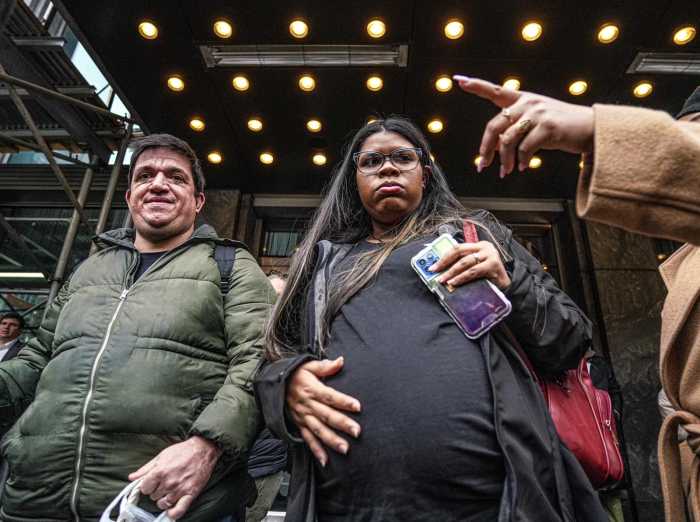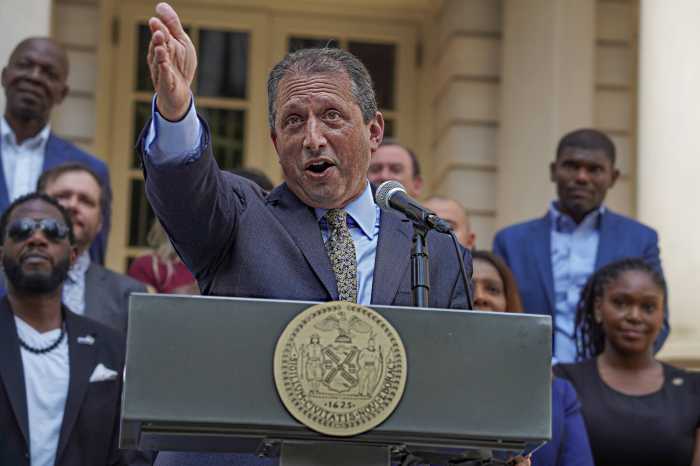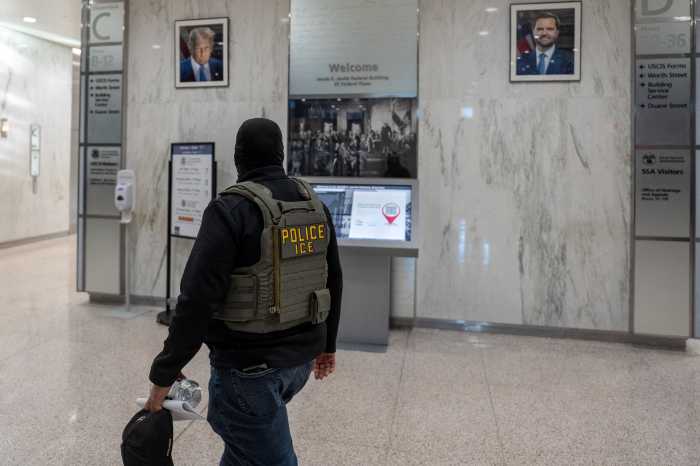DocGo, a medical testing company which Mayor Eric Adams’ administration gave a $432 million contract for migrant services, allegedly wasted millions of dollars on unfilled hotel rooms and unauthorized subcontractors, according to an audit city Comptroller Brad Lander’s office released Tuesday.
In the audit, Lander’s office found that the city Department of Housing Preservation & Development (HPD), which holds the emergency no-bid contract with DocGo, did not properly oversee the contract, costing millions of taxpayer dollars. The report — analyzing the first two months of the contract in May and June 2023 — found that close to 80% of the city’s payments to DocGo during that period were either not properly documented or fell outside of the contract’s terms.
Lander, during a Tuesday morning news conference, said his office’s audit revealed multiple problems with how HPD was tracking DocGo’s spending an service delivery.
“Once we started digging in on the invoices especially, we immediately saw the trouble with them,” Lander said. “In the vast majority of cases, proper documentation was not provided, time-keeping was not adequate, subcontractors had not been approved. And the city was being billed for services [when] there was no evidence [they] had even been provided.”
Specifically, the comptroller’s office found that HPD paid for nearly 10,000 unused hotel rooms, over which DocGo raked in $408,680 in commissions; shelled out more than $2 million for security services over what was authorized in the contract; and did not approve a single subcontractor hired by DocGo.
Furthermore, auditors reported that 80% of the 189 hotel rooms they visited had some kind of deficiency, ranging from missing refrigerators and microwaves to more serious health hazards like mold.
Lander launched the audit into DocGo shortly after the administration chose to move forward with the contract over his office’s rejection of it last fall. He said that once his office started to notice issues with the invoices HPD submitted, it raised concerns about them “immediately.”
The comptroller’s office is calling on the city to recoup $11 million, of the $13.8 million it paid DocGo over the two-month period that it reviewed, which it says were not properly supported. However, Lander noted that the administration has indicated it does not intend to recoup the money.
“We hope publishing the audit and getting the word out and having New Yorkers as angry as we are about how much of their money is being wasted will lead City Hall to reconsider,” Lander said.
Mayor Adams responds
But Adams, during his weekly wide-ranging press conference, waved away the comptroller’s findings, insisting the emergency contract was issued at a time when the city was overwhelmed with a deluge of migrants arriving every week that it needed to quickly find housing for.
“When you get that call in the middle of the night, you need 200 rooms,” Adams said. “A bus pulled in, you need 150 rooms, you need 300 rooms. You don’t have time to call Motel 6 … And it is very comfortable to just sit in the bleachers and just be a detached spectator, but when you are running a city as complex as this you have to be prepared.”
Camille Joseph Varlack, Adams’ chief of staff, added that the audit covered a “very specific” period of time and that the administration had already begun to put changes the comptroller was seeking into practice before it started.
Varlack also pointed to the city’s decision in April to decline renewing the contract with DocGo and replace it with a competitive bidding process. However, DocGo can still participate in the process and be selected for the contract once again.
Meanwhile, a DocGo spokesperson insisted in a statement that the charges incurred by DocGo for unfilled rooms were a part of standard practice.
“Booking thousands of rooms for thousands of people entering the city at a moment’s notice involves a myriad of complexities, from overhead costs, technology systems and rapid deployment expenses to the nuances of regional market rates and the assumption of risk for future uncertainties,” they said. “These costs are included in the flat fee that we charged the city. Suggesting that this is not a normal practice for any business providing these services is misleading.”
Read More: https://www.amny.com/politics/






































